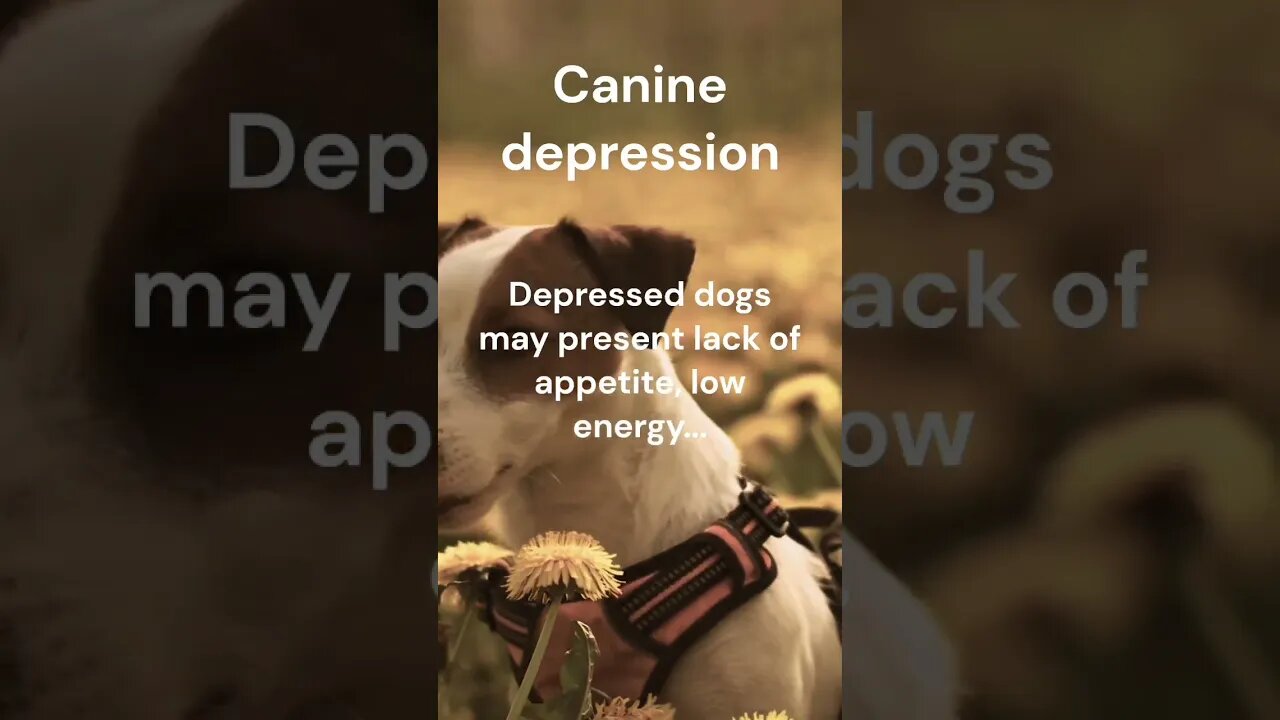Premium Only Content

Canine depression #shorts #shortsfacts #dogs
Canine depression #shorts #shortsfacts #dogs 🐶
Canine depression, or clinical depression in dogs, is a condition characterized by a persistent feeling of sadness and disinterest in activities that the dog previously enjoyed. While it is not entirely clear what causes canine depression, it is believed to be influenced by a combination of environmental, genetic, and biochemical factors.
Some of the common symptoms of canine depression include lethargy, lack of appetite, decreased interest in play, decreased social interaction, and changes in sleep patterns. Depressed dogs may also become more irritable or aggressive, or show signs of anxiety and restlessness.
There are several factors that can contribute to the development of canine depression, such as major life changes, such as the loss of a companion, moving to a new home, or a change in routine. Other factors that may contribute to canine depression include chronic pain or illness, poor nutrition, or a lack of exercise.
Treatment for canine depression typically involves a combination of medication, therapy, and lifestyle changes. Veterinarians may prescribe antidepressants or other medications to help manage symptoms, while behavioral therapy can help the dog to learn new coping skills and reduce stress levels. Additionally, it is important to provide plenty of social interaction, exercise, and mental stimulation to help improve the dog's overall well-being and quality of life.
-
 LIVE
LIVE
Right Side Broadcasting Network
7 days agoLIVE: TPUSA's America Fest Conference: Day One - 12/19/24
8,686 watching -
 LIVE
LIVE
Man in America
23 hours agoPfizer Has Been Caught RED HANDED w/ Dr. Chris Flowers
1,275 watching -

Slightly Offensive
6 hours ago $1.18 earnedAttempted ASSASSINATION of Nick J Fuentes LEAVES 1 DEAD! | Guest: Mel K & Breanna Morello
16.7K10 -
 1:43:08
1:43:08
Roseanne Barr
6 hours ago $2.96 earned"Ain't Nobody Good" with Jesse Lee Peterson | The Roseanne Barr Podcast #79
55.5K26 -

The StoneZONE with Roger Stone
3 hours agoTrump Should Sue Billionaire Governor JB Pritzker for Calling Him a Rapist | The StoneZONE
31.1K3 -
 LIVE
LIVE
Flyover Conservatives
21 hours agoAmerica’s Psychiatrist Speaks Out: Are We Greenlighting Violence? - Dr. Carole Lieberman | FOC Show
661 watching -
 LIVE
LIVE
LittleSaltyBear
4 hours ago $0.32 earnedNecromancing Path of Exile 2 4K
319 watching -
 3:51:34
3:51:34
Akademiks
4 hours agoJay Z War against Diddy Accuser Lawyer GOES CRAZY! Lil Baby Speaks OUT! Cardi v Offset? Bhad Bhabie?
73.9K5 -
 1:15:42
1:15:42
Josh Pate's College Football Show
5 hours ago $0.16 earnedCFP Changes Coming | Transfer Portal Intel | Games Of The Year | Head Coaches Set To Elevate
21.4K -
 1:21:17
1:21:17
Donald Trump Jr.
8 hours agoWhat are These Mystery Drones? Plus Inside the Swamp’s CR. Interview with Lue Elizondo | TRIGGERED Ep.200
108K113